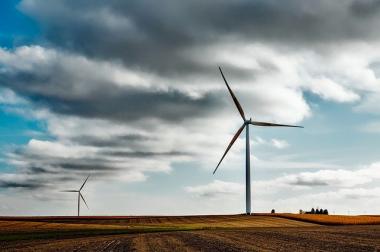In the new electricity guidelines of the EU legislative package ‘Clean energy for all Europeans’, which is currently being translated into Flemish law, citizens are being afforded a more active role in the energy market. Thus civil society is not only allowed to produce, use and store renewable energy, but also to sell it. Of course, specific skills and tools are needed for this. Citizens in energy communities will not only need knowledge of socio-economics, greenhouse gas reduction and technology, but also of entrepreneurship and management.
We are absolutely delighted that the EU institutions appreciate the results of our ECCO project and have underlined this by approving the capitalisation process for the existing ECCO project.
Thanks to the North Western European Interreg project ECCO and its expansion with the ECCO capitalisation process, we will be able to inform farmers and rural residents about, and assist them with, the implementation of energy opportunities in rural areas until the end of 2021. We set local communities of citizens and farmers who would like to start working with renewable energy on the right path with the accumulated knowledge, expertise, tools and skills needed to play a key role as an energy cooperative within the new renewable energy market.
North Western European Interreg project ECCO
The North Western European Interreg project ECCO, which stands for Energy Community Co-Operatives, aims to roll out more and better energy cooperatives in rural areas, and to build up a knowledge network in North Western Europe to exchange expertise and experience around renewable energy projects initiated by local civil society.
ECCO capitalisation
Because the ECCO project was submitted more than a year prior to the approval of the new "Clean Energy Package", it was predominately focused on renewable energy production, storage and (self) consumption. The new EU directive now allows renewable energy communities to trade the energy they produce on the commercial energy market, and thus to enter an entirely new economic sector. This will help ECCOs to be economically viable in the long term, given that it will enable them to develop their own client base and to reduce their dependence on feed-in tariffs. This opens up more opportunities for existing and additional ECCOs.
On the other hand, these local citizen communities undoubtedly need additional skills and management tools to survive in this commercial energy market. As well as socio-economic and technical skills, they also need to develop entrepreneurial skills. The ECCO capitalisation is focused on developing and using these additional entrepreneurial skills and tools. For this, the existing ECCO consortium will draw its inspiration from another North Western European Interreg project: Community Virtual Power Plant (cVPP), amongst other things. A cVPP or virtual power plant is a power plant made up of a network of local energy production, storage and usage, which is controlled by a smart ICT system. This system ensures that production and usage are better aligned, and that the electricity network does not become overloaded. The energy installations are linked together virtually, thus forming a large shared power plant. The existing ECCO consortium is being expanded with two additional partners: Energent and Stichting Duurzame Projecten Loenen, which have experience with cVPP.

